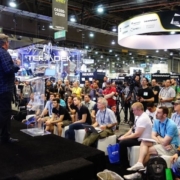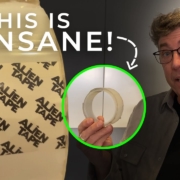Is Filmmaking Fair?
Is filmmaking fair?

By Lydia Hurlbut
Why does it seem that certain people have the midas touch in terms of their career? On the surface everything for them seems to happen effortlessly and at the perfect time. Other filmmakers struggle for years and have quite the opposite experience. Examining the idea of fair vs. equal may help deepen this understanding.
As a child I remember saying to my father, “That’s not fair” anytime there appeared to be injustice or inequality. My wise father’s response, “Lydia, who ever said life was fair?”
Fairness and justice have always been very important concepts to me. It was always a mystery as to why certain people seemed to have it so easy and others worked incredibly hard without the same level of success. Hard work is an important ingredient but not everything. There are many layers to success that go far beyond hard work. Understanding what success means to you is the first step. Is it financial? Is it choosing projects that have meaning? Is it having freedom and flexibility over your time?
Recently I listened to Curt, a family friend, as he defined fairness/equality to my son Myles. An internal light bulb went off in terms of understanding. Fairness means that each person gets what he or she needs in a given situation. Equality is defined as the exact same amount for everyone, no matter what the circumstances.
Back to the original question, “Is filmmaking fair?” The answer is yes. Is it equal? Not for one minute.
Why is this important and how does it apply to your day to day shooting experience? There is a simple answer. You determine your definition of success and then what it takes to make it fair in a given situation. If you are at a disadvantage, let’s say due to lack of experience or not having enough crew or budget, how do you get creative to make that shoot work?
Here are a few disruptive ideas.
1. Find a talented mentor and do not be afraid to ask “silly” questions or take risks. Failure is part of the learning process. Shane and I guide people every day by listening, offering advice about how to manage expectations and giving specific ideas on how improve communication. It takes courage to have difficult, authentic discussions that you are scared to initiate. However, they clear the air and prevent guessing games and mind reading. Communicating and finding a good mentor are two of the most important things you can do.Shane’s Perspective: I get asked by a ton of filmmakers how to break into this business. “Should I move out of my area and go to LA or NY?” The answer is always the same. If you are in a local market and you want to move out of your comfort zone, then you have to do it, you have to take that risk and follow your dream. Doing it with a spouse, fiancé or a girlfriend/boyfriend for support is highly advised. Without my wife Lydia, I would have never made that jump. I needed that support.
2. Relationships matter when you first start out and become more important over time. Crew members become like family on the set of a movie and equipment vendors save you when pioneering with new technologies. A number of our HV sponsors have known Shane over 20 + years. They respect him as an artist and a person.Shane’s Perspective: What Lydia talked about above is probably the most important point going along with my start at the bottom philosophy wherever you choose to go. The friendships you make are what will build and shape you as an artist.When I started out I was working at a rental house in LA called Keylite. It does not exist anymore, which definitely dates me. HA HA!!! After working there just three months, I got asked to give up my job and security and work as a grip truck driver on a low budget horror film called Phantasm II. I was scared about what was going to happen after the feature finished. What happened was that I didn’t work for three months but I kept my cool and kept calling all of the people I befriended on the movie.That is when it hit. Brian Coyne was the Best Boy electric on the movie and a USC cinematography graduate, doing anything he could to get into the business. One of his USC classmates got a directing gig for a local radio station and asked Brian if he wanted to be the DP. Then Brian asked me to be his gaffer. I had no idea how to read a light meter or truly be a gaffer, but we were buddies and learning together, coming up the ladder together. We knew we would have each other’s backs.I feel that the secret to making it in the movie business is that it takes a village. Brian and I went on to do many commercials and music videos together and the rest is history.
3. We all have a unique journey and there is no “correct” film path. Each life experience serves to propel you forward. I began as a nurse, specialized in forensics, became a life coach, studied marketing and business all before running HV and RCR. I use my nursing skills when someone is sick, forensics skills with attention to detail in business and marketing, my ability to relate and assess the match between passion and skillset when interviewing as a result of life coaching. Business today is collaborative and requires being fully present at work and in life. There is no more segmenting pieces of yourself or carving out “Lydia the CEO.” Everything flows and we have to wear multiple hats and take on various roles throughout the day as business/life requires.
4. Be daring and unconventional. Listen to your intuition and let it guide you. I have done more unusual things in life based on intuition and never regretted it for a second. In 1993 when I was waitlisted for medical school, the day after the letter arrived, I flew to Chicago to meet with the Dean (without an appointment) and discuss why they had made the wrong choice. Important business decisions are made with both intuition and facts. If something doesn’t feel right to me, I don’t question my intuition because the answer may not instantly present itself. We cannot control timing. However, we must listen to our internal truth and use it as the guide.
5. Collaborate and share ideas to improve artistry up to the very last minute. Don’t throw obstacles in your own path. Disrupt. Change it up. Artistic comfort is not a good thing. Repetition even when asked is not a good choice because it allows for you to be lazy. My Dad was an Episcopal minister who burned every sermon immediately after giving it, so he would not be tempted to use it again.
6. Do your best NOT to let money determine artistic choices. Dream first. Then cut to fit a budget. Otherwise you limit yourself initially.
7. Talent is key. If you are not born with filmmaking genius, challenge yourself to learn everything possible with hands on practice. Theory is a must for understanding concepts. Hands on practice is also critical to cement understanding. Most people I know in the film industry are both tactile and visual learners. Understand your learning style and find those unique learning opportunities to improve your artistic skillset.
8. Go out and shoot! Make mistakes and learn from them. That is how you become a true artistic talent. Mistakes force artistic choice in the moment that may never have happened if everything had gone according to perfect plan.
What experiences have you had? Is the industry fair?
Watch Shane’s recent interview with Ryan Connolly from Film Riot, covering more about getting started in the business and how to succeed.










enjoyed this hope I get to make the tour….Great Job
Vince,
Thanks for your support on this post. I hope you can make the tour as well.
It is different at every stop depending on the participants and such a great
way to learn.
Lydia
I really like this post. Simple and full of great nuggets of wisdom.
I love #5 because there is a myth out there on the internet that makes filmmakers think they need to do everything by themselves. This is not true, there are an army of people in every city in america that want to make great films. Work together, that is how filmmaking was designed to be.
Thank-you for the kind words Nic. I absolutely agree with you about the internet myth
on solo creations. The greatest films of all time were based on collaboration. I hope
that this Blog is one way for filmmakers to connect with one another.
Lydia
Lydia,
Well done! Some great inspirational and thoughtful points for creatives to ponder. When a person loses the drive to learn and challenge, so is lost the ability to inspire others associated in a project. After 30 years of shooting I know a great deal but still feel like a student of the craft.
Initially, I was a little hesitant to take Shane’s course. In Philly I helped with the load in, worked successfully with the crew (a good crew) and Shane on the pre-light. A very rewarding experience. Then a day later, followed the tour to DC. During the Master Class, Shane instructed me to fire myself at least twice. But at the end of the day, because of my mistakes, I knew I was a better filmmaker.
Thanks for all you do,
Art C
Art C,
Thank-you for taking the time to share. It is exciting to know that after 30 years in the field you are humble as a learner. Being “fired” by Shane is always a positive experience as he deeply cares about knowledge being cemented and thinking outside of the frame, so to speak. Happy Halloween and stay safe.
Lydia
Thank you very much for sharing your experiences and wisdom – it’s a wonderful and inspiring post
Jose C,
Your comment means so much. Thank-you!
Have a wonderful Halloween.
Lydia
Nicely done!
Hugh,
Happy Halloween! Thank-you for taking the time to comment. More posts to come on leadership and inspiration, marketing yourself as a filmmaker, different ways to keep up with the information overload we all face. Stay Tuned…
Lydia
Aloha Lydia, I fondly recall back when I attended Shane’s HD-SLR Bootcamp in L.A., some 4 years ago. You stood up there and enthusiastically welcomed us eager film-learners all hungry for Shane’s knowledge. Both you, and Shane, knocked our socks off and I could tell that you were so honestly proud of him, his team, and what you so tirelessly built together.
While we will all be there to learn of Shane’s lighting wizardry, I do hope that we can also glean from your unique experiences of building and nurturing a creative and talented team, over the years, and what it takes to thrive, remain passionate and in the game.
I look forward to seeing you all in SFO and we all look forward to your future posts!
All the best,
George
George,
It was so great to see you in person in SFO and thank-you for the Hawaiian treats for the guys! Your support means more than words can express. I am continuing to write for the blog and have so many ideas for posts. Stay tuned and safe travels.
Lydia
Thanks Lydia, this post couldn’t have came in a better time when I really need the inspiration to keep moving forward.
Derek,
Thank-you for the kind words and I am glad it helped! Inspiration always seems to come just when we need it. Perspective is always the most difficult and I have a support network of trusted people that I turn to which really helps!
Lydia
Lydia,
I really love posts like these. As a student not a tradition film school and wanting to move out to LA in a year when I graduate. It is a bit scary thinking about it and trying to get my feet off the ground. I really do enjoy these post. It gives me more convenience to press on.
Alan,
Thank-you for the feedback and best of luck! Keep going even when it feels discouraging as it will be worth it in the end.
Lydia
Great post Lydia. Love the life/work posts the best…Watching HV grow since the Boot Camp has been amazing. Thanks for all the help over the years.